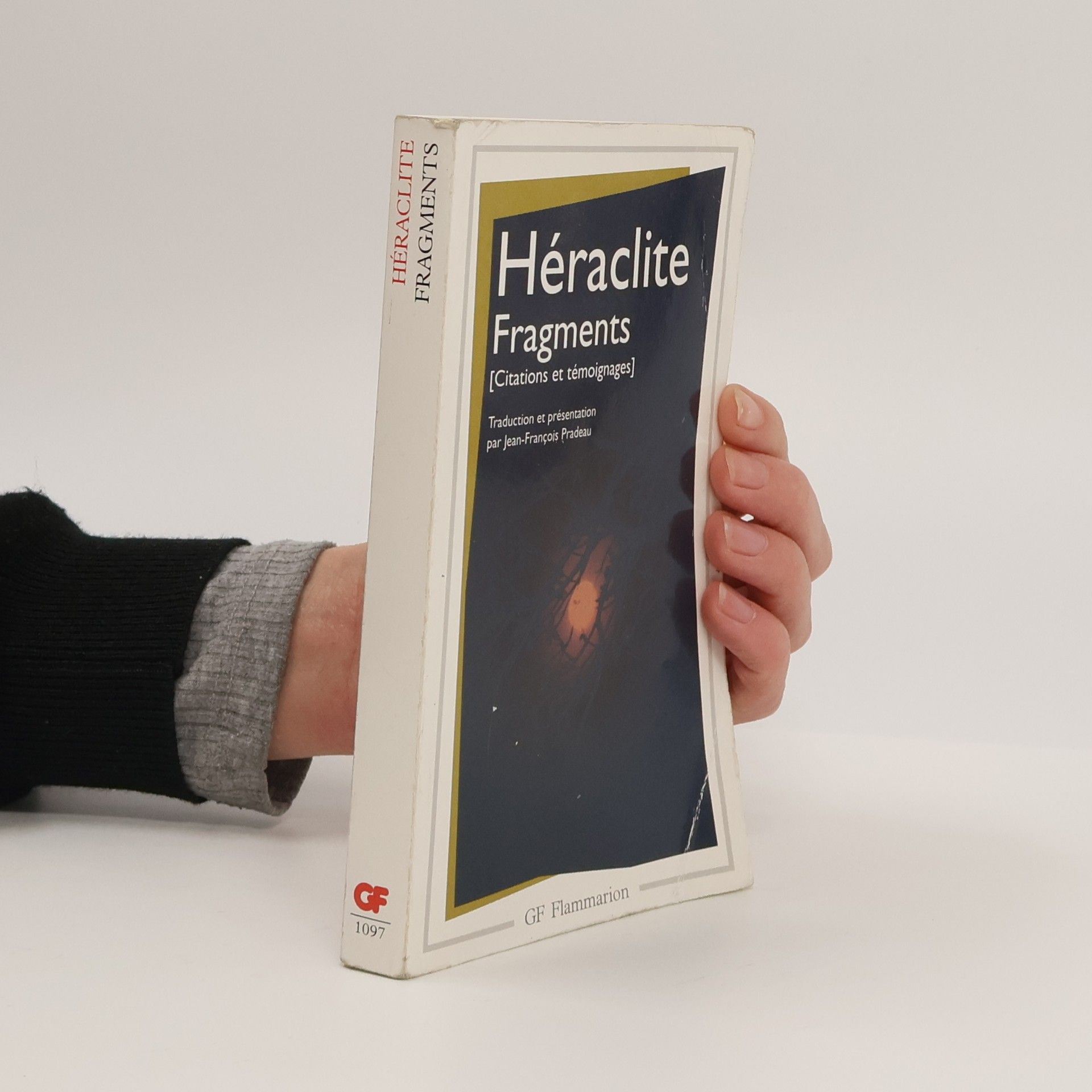The Fragments of the Work of Heraclitus of Ephesus on Nature;
- 154 pages
- 6 hours of reading
Excerpt from Heracliti Ephesii Reliquiae Logos 0. I.: Oldenb. 1872 - F. Lassalle, Die Philosophie Herakleitos des Dunklen von Ephesos: Berol. I85s - F. W. A. Mullach, Fragm. Philosophor. Graecor. T. I.: Par. 186o - H. Ritter et L. Preller, Hist. Phiiosophiae Gracco Romanae: Hamb. 1838 (ed. Quint. Goth. 1875) - F. Schleiermacher, Hera kleitos der dunkle, von Ephesos: Opp. Philos. T. Ii., et prius in Wolfii et Buttmanni Mus. Der Alterthumswiss. T. I.: Berol. 1867 Schuster, Heraklit von Ephesus: in Ritschelii Act. Soc. Phil. Lips. T. Iii.: Lips. 1873 - G. Teich )niiller, N eue Studien zur Gesch. Der Begriffe: Goth. 1876 - E. Zeller, Die Philosophie der Griechen t. I. P. 566 ed. Quart.: Lips. 1877. About the Publisher Forgotten Books publishes hundreds of thousands of rare and classic books. Find more at www.forgottenbooks.com This book is a reproduction of an important historical work. Forgotten Books uses state-of-the-art technology to digitally reconstruct the work, preserving the original format whilst repairing imperfections present in the aged copy. In rare cases, an imperfection in the original, such as a blemish or missing page, may be replicated in our edition. We do, however, repair the vast majority of imperfections successfully; any imperfections that remain are intentionally left to preserve the state of such historical works.


